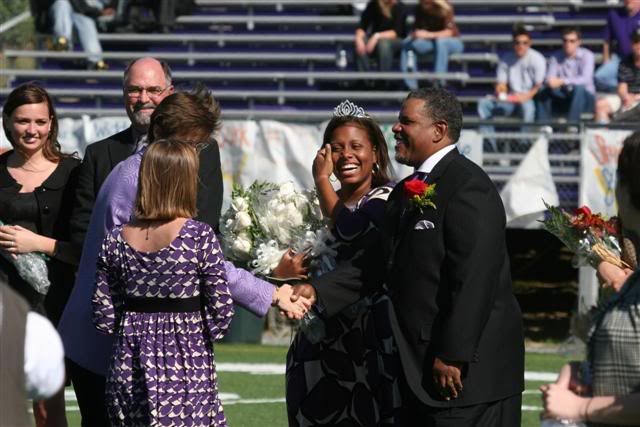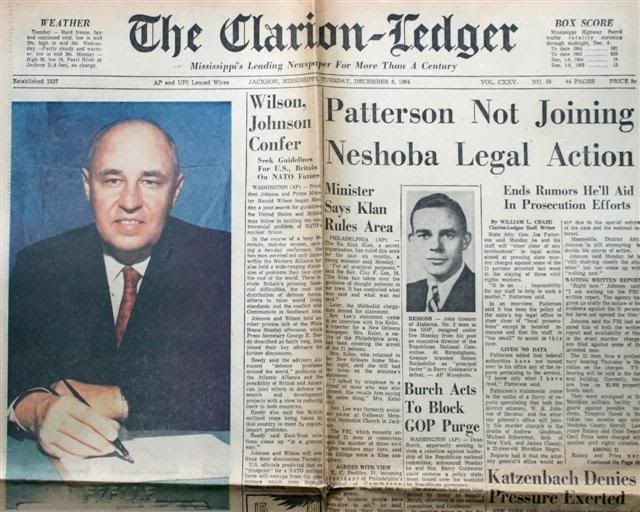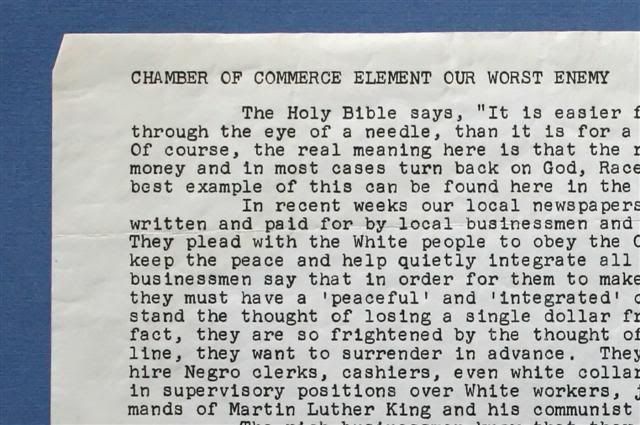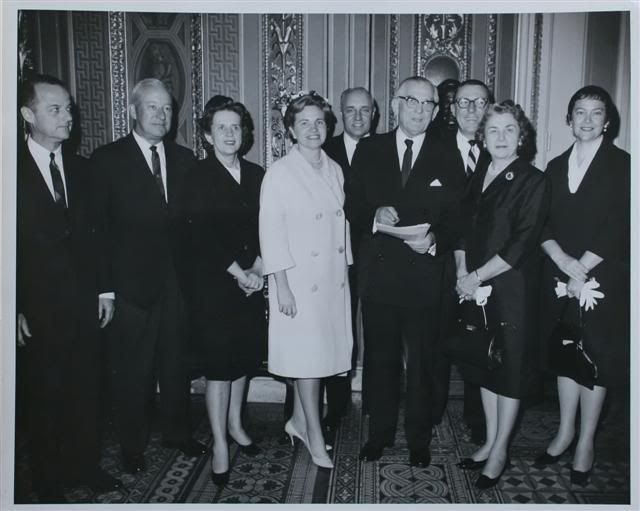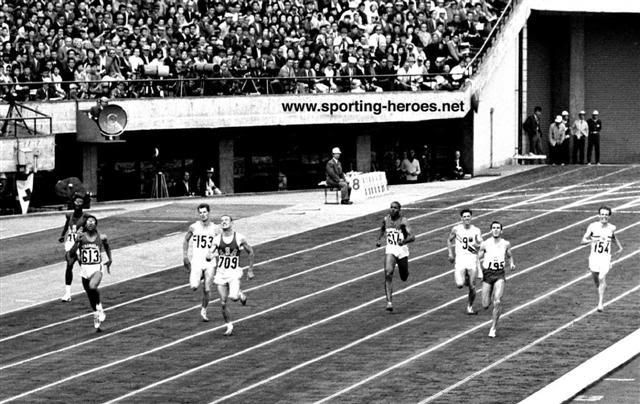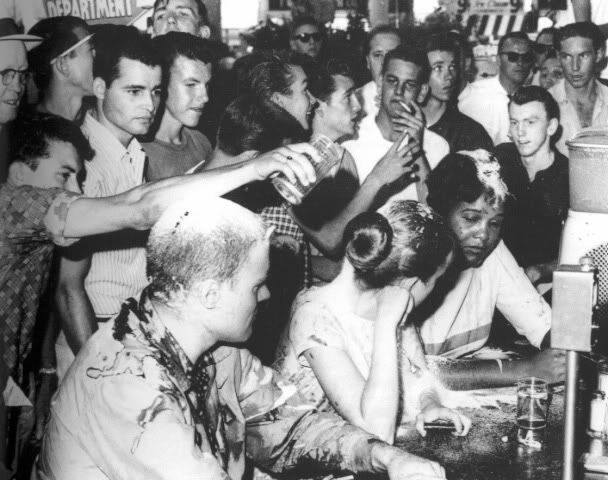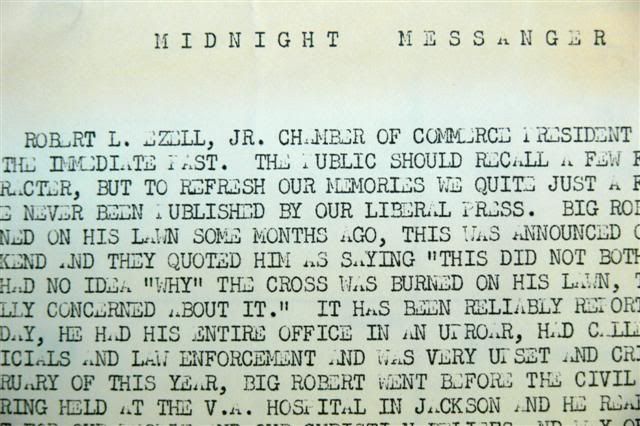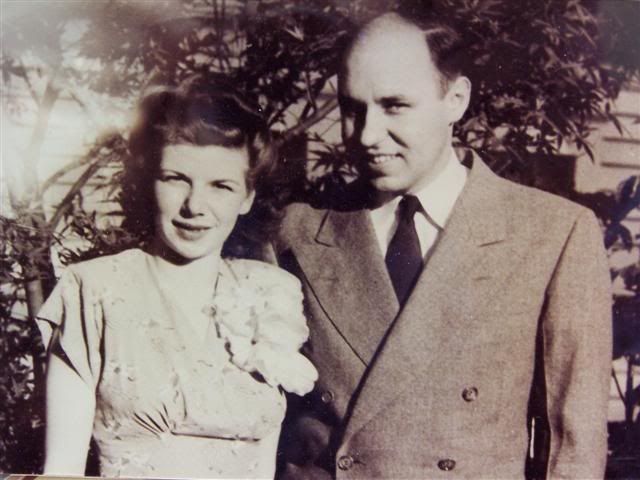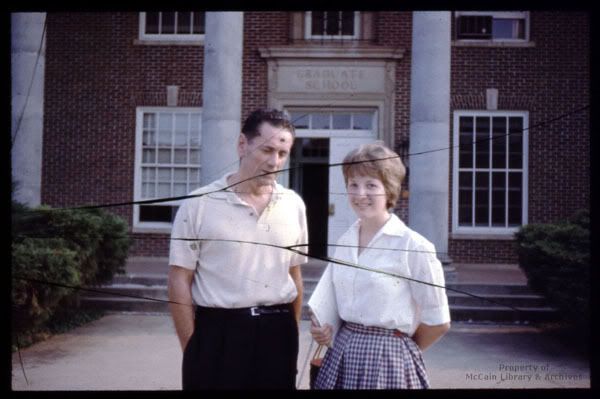
Pictured above are James Silver and Zoya Zeman. I know of James Silver, the author of "Mississippi: The Closed Society", and I have found an oral history transcript on Zoya Zeman that I haven't had a chance to read. I checked out the book "Running Scared, Silver in Mississippi" by James Silver yesterday at the main Jackson library. It had been on the shelf so long that it still had one of the cards the librarians once used when they hand stamped the due date. This book was last due back on July 13, 1989. Maybe I shouldn't be surprised that despite sending this blog address out to about a hundred people, the typical day has less than 10 hits. I don't think many people really want to relive or remember this era in our history.
Personally, I'm finding it fascinating and I look forward to the time when I can read more. I'm discovering that I have never really understood the time period, the deep feelings, the conflicts between groups on the same side of the issue, and much more. While this blog started out about my dad and I seem to veer away from his story most of the time, I'm getting a better understanding of what he did and what he went through as I learn more about Mississippi in the mid-1960's. I have just glanced through the James Silver book and I immediately found a section that illustrates the difficult middle ground that whites like my dad and James Silver inhabited during these times.
The following comes from page 85 of the book and it must be in 1964 or 1965. James Silver is already well known as an Ole Miss professor who has put himself in a dangerous situation by his speeches, writings and actions in favor of Civil Rights. It would have been hard to find many who had gone so far out on a limb in Mississippi. He was teaching during the summer at Emory University in Atlanta and this is what he wrote:
"In August came an invitation to address a training group of SNCC partisans on the campus of Atlanta University. By then I had written exactly sixteen pages of my prospective speech to the Southern Historical Association and I figured this would be an auspicious occasion to try them out. So I drove out to the campus after supper, finding my mixed audience still playing softball in the evening glow.
Finally, shirtless men and women in shorts came in from the warm athletic field, I presumed to listen to my words of wisdom. But each time I girded myself for oratory as I thought my introduction imminent, someone in the back of the room would start up another chorus of "We Shall Overcome." When I did get up to speak, I had long since despaired of reading even the Gospel to such a wildly demonstrative audience, and so I made a few remarks regarding what I thought I had learned in Mississippi.
A question period brought pertinent inquiries, including one about whether they was any way "they" (Bill's "enemy") could get to me. Without much thought, I answered that I certainly was vulnerable through my nine-year-old daughter. Immediately, a large black shouted at me the impossible question: "Ya mean ya wouldn't sacrifice your daughter for the cause?" My reaction was somewhat emotional, to the effect that I wouldn't sacrifice Gail for all the Negroes in America, and I may have added Africa to boot.
The room temperature dropped to the point of refrigeration, and I was later told that occasionally thereafter I was referred to as "Uncle Tom Silver." When I had calmed down, I realized that Negroes had sacrificed, unwillingly, their daughters for two centuries, but I'm afraid the episode only added to my perplexity as to how to get along with blacks."
----------------------------------------------------
Here's a man who was literally risking his life to speak out for Civil Rights, and those he is trying to help shun him because he is not willing to also risk the life of his 9-year-old daughter. When you consider how little the men like James Silver and my dad had to gain, how much they had to lose, and how they were subject to criticism from both sides of the issue, it took an amazing amount of courage and convictions to one's principles to stand in that middle ground.
